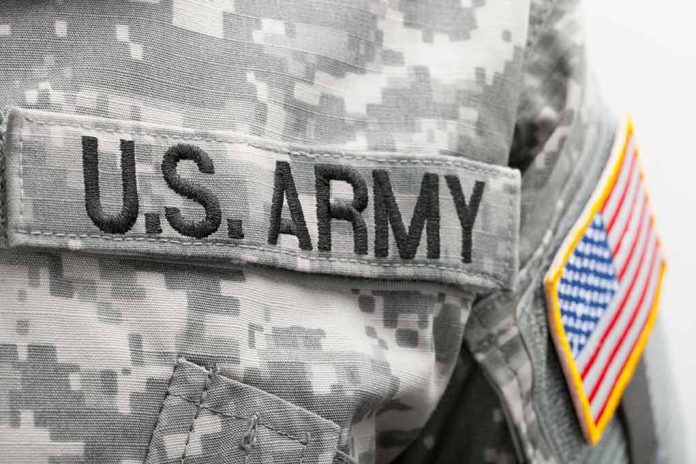
Trump’s plan to purge ‘woke’ generals could reshape the entire military leadership landscape, potentially retiring over half of current top brass.
At a Glance
- Trump team considers executive order to retire generals lacking “requisite leadership qualities”
- Proposal could affect majority of 44 four-star and 162 three-star officers
- Outside board would bypass Pentagon’s promotion system to recommend removals
- Critics warn of potential politicization and chilling effect on military leadership
- Concerns raised about fairness and impact on military culture and readiness
Trump’s Bold Move to Reshape Military Leadership
In a move that could dramatically alter the face of America’s military leadership, President-Elect Donald Trump’s transition team is reportedly considering an executive order that would target high-ranking officers deemed lacking in leadership qualities. This proposed action, aimed at what Trump supporters call “woke” generals, could lead to the retirement of a substantial portion of the military’s top brass, potentially affecting over half of the current 44 four-star and 162 three-star generals and admirals.
The draft order under consideration would establish a review process focused on leadership capability, strategic readiness, and commitment to military excellence. This unprecedented move would bypass the Pentagon’s regular promotion system, instead relying on an outside board appointed by Trump to recommend officers for removal. The board, composed of retired generals and noncommissioned officers, would have the power to identify high-ranking officers for retirement, with those selected being required to step down at their current rank within 30 days.
During his campaign for reelection, Donald Trump vowed to purge the military of so-called woke generals. Now that he is president-elect, the question in the halls of the Pentagon is whether he would go much further. https://t.co/HH6STWqVBx
— The Japan Times (@japantimes) November 11, 2024
Targeting “Woke” Leadership
The initiative is being framed as a necessary step to purge the military of what Trump and his supporters view as “woke” generals – those perceived as prioritizing diversity and social issues over military readiness and combat effectiveness. This move aligns with Trump’s previous criticisms of military leadership during his presidency and his campaign promises to refocus the armed forces on what he considers core military values.
Supporters of the plan argue that it’s a much-needed course correction for a military that has strayed from its primary mission of national defense. They contend that under current leadership, too much emphasis has been placed on social engineering and political correctness at the expense of combat readiness and strategic capability. The proposed executive order, they say, would help restore a focus on traditional military values and operational excellence.
Concerns and Criticisms
However, the proposed plan has drawn significant criticism from various quarters, including military experts and former officers. Critics argue that such a sweeping change could politicize the military, creating a chilling effect on officers and potentially discouraging them from speaking out against illegal or unethical orders. There are concerns that this could undermine the military’s role as a non-partisan institution dedicated to defending the Constitution rather than serving any particular political agenda.
Furthermore, questions have been raised about the fairness and credibility of the proposed retention board. Critics point out that bypassing established promotion systems and relying on an outside board appointed by a single individual could lead to decisions based more on political loyalty than on merit or actual leadership ability. This, they warn, could have far-reaching implications for military culture, morale, and overall readiness.
Legal and Practical Considerations
While the President does have significant authority to remove and promote commissioned officers, it’s worth noting that Congress must approve general officer promotions. This could potentially create a legal and procedural hurdle for implementing such a sweeping change. Additionally, the practical implications of removing a large number of experienced senior officers in a short time frame could pose significant challenges for military operations and continuity of leadership.
As this proposal continues to be debated, it’s clear that its implementation would mark a significant shift in how military leadership is selected and retained. Whether it would lead to a more effective fighting force or undermine the military’s professional ethos remains a point of intense debate. What’s certain is that if enacted, this executive order would represent one of the most dramatic overhauls of military leadership in recent American history.






















